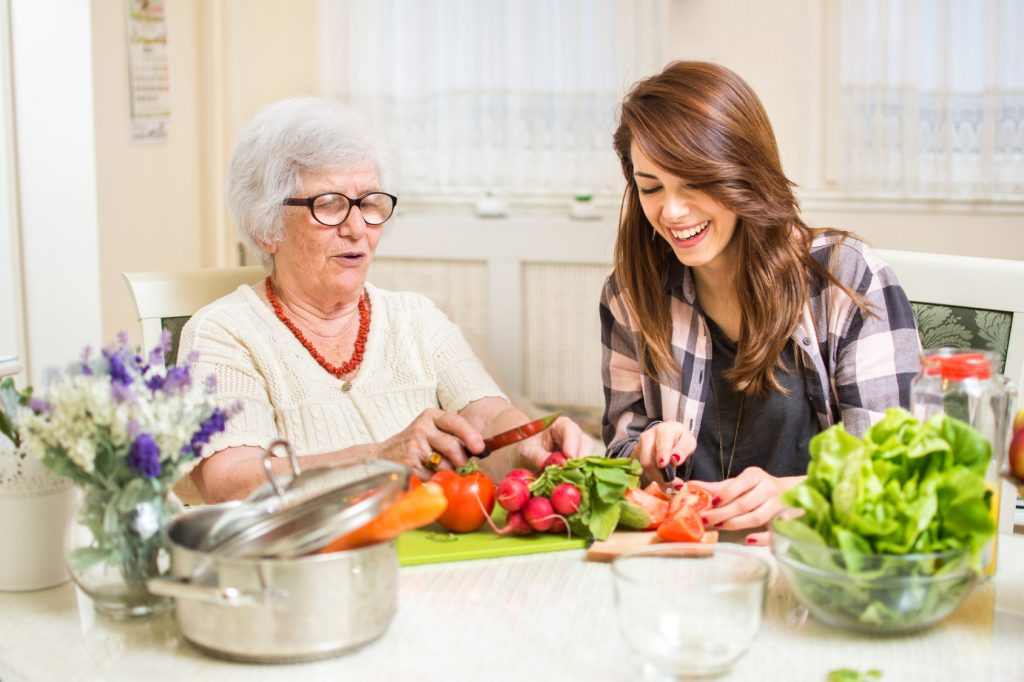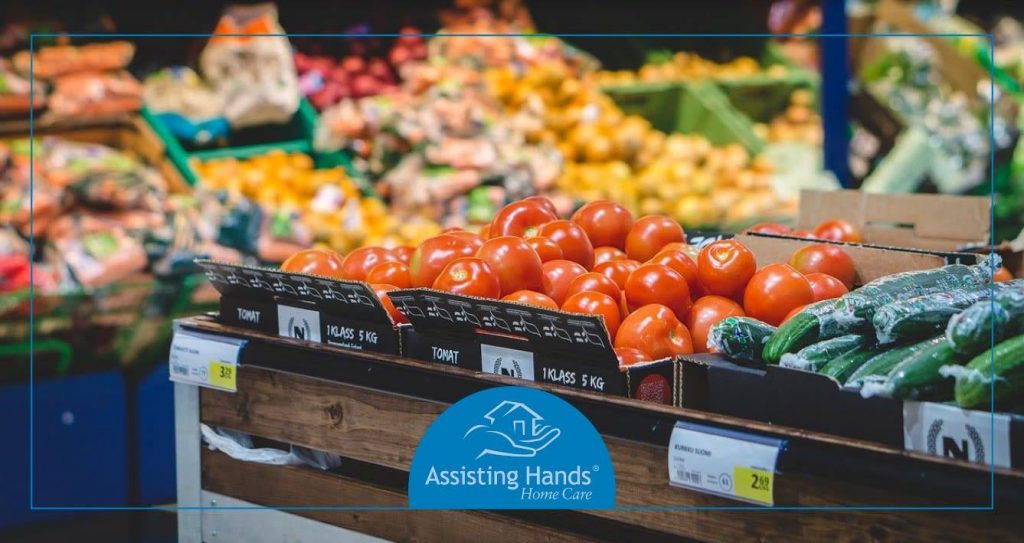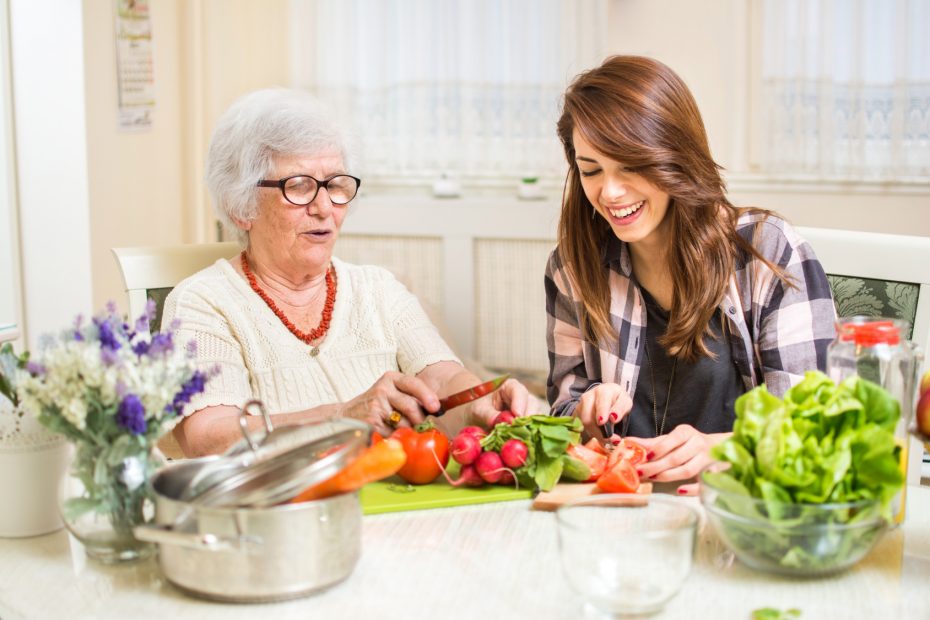
Throughout people’s lives, it is normal for their food preferences and diets to change. What someone once enjoyed eating as a child may no longer have the same appeal to them as an adult. When people reach old age, their diets may change due not only to food preferences but nutritional requirements and health concerns.
For example, seniors might have a tougher time chewing food, so eating tough, harder foods is something they have to avoid. Instead, they need to eat softer foods like oatmeal or bananas.
Because of this, buying groceries for elderly individuals is not as simple as getting whatever they want. More consideration must be taken into account.
If you are doing grocery shopping for an elderly individual, then consider the following basic grocery list when at the store.
1. Vegetables and Fruits
A person’s need for vegetables and fruits remains regardless of their age. They are foods that will provide seniors with essential nutrients and vitamins for good health and energy to get through the day. With a variety of vegetables and fruits available, there are numerous options for seniors to indulge in from lettuce and cauliflower to oranges and watermelons.
If chewing is a concern, then softer fruits and vegetables like bananas, peaches, spinach, peas, and steamed zucchini are great choices.
Fruits and vegetables will go bad if not eaten within a certain time frame, but there are frozen varieties available for purchase. This will ensure seniors can have vegetables and fruits on hand without having to worry whether they are still good enough to eat.
2. Foods with Healthy Fats
The word “fat” is generally viewed with a negative connotation. However, fats are something people need, especially elderly individuals. Healthy fats can combat dry skin and hair. Some seniors may need help gaining weight, and healthy fats can aid in such a process. It’s saturated and trans fats that need to be avoided whereas healthy fats, like monounsaturated and polyunsaturated fats, are important.
Foods like avocados, chia seeds, and nuts all contain healthy fats that can be of great benefit to elderly individuals. Adding olive oil to pasta or eating fatty fishes like salmon and trout that also contain healthy fats are good options as well.
3. Complex Carbohydrates
Carbohydrates are another type of food that is sometimes seen with a negative connotation, but this isn’t always the case. Simple carbohydrates can be harmful because of the blood sugar spikes they can cause, but they are not always bad. The natural sugars in fruits are simple carbohydrates that are good, but processed sugars found in foods like pre-packaged foods are not very beneficial. The carbohydrates seniors should be consuming and focusing on are complex carbohydrates.
Complex carbohydrates are made of longer sugar molecules, so it takes your body longer to break them down. This, in turn, provides more energy as opposed to simple carbohydrates that provide less energy.
Knowing this, seniors should eat complex carbohydrates like oatmeal, brown rice, and whole grain breads and sweet potatoes.
4. Protein
Elderly individuals may not have the strength they once had when they were younger, but it is imperative for them to maintain their muscle mass. This will allow seniors to stay strong, healthy, and mobile. But it can be tougher to do this if seniors are not getting their necessary protein intake. So when grocery shopping for seniors, do not forget to buy protein-rich foods such as chicken and fish.
However, protein intake can be difficult for some seniors because they do not like the taste of meat or have a tough time eating it. If so, seniors can get proteins from many other foods — including eggs, tofu, and beans.
5. Low-Fat Dairy Offerings
Calcium is a crucial component for maintaining strong bones and teeth. For seniors, this is especially essential, because calcium will help maintain and improve bone strength.
Elderly individuals can get their calcium intake from dairy, but make sure to get low-fat dairy to avoid unnecessary saturated fats. For example, low-fat milk, fat-free cottage cheese, and probiotic yogurts are good dairy choices to purchase for seniors.
However, dairy can be tough for some seniors to digest. In such a case, alternatives like almond and coconut milk are options to consider.
Professional Alzheimer’s and Dementia Care from Assisting Hands Home Care

If a senior is affected by Alzheimer’s disease or another form of dementia, then it can be especially difficult for them to keep track of their eating habits and eat properly. But without a regular, healthy diet, the affected individual’s health, well-being, and condition will only get worse. With home care assistance, however, seniors with dementia can receive the care they need.
Assisting Hands Home Care provides in-home memory care services in Aurora, Bartlett, Batavia, Geneva, St. Charles IL, and the neighboring areas for elderly individuals who have Alzheimer’s disease or another type of dementia. Within our Alzheimer’s care services, our qualified caregivers will provide effective home care and assistance that ensures seniors are safe and cared for at home.
We will help clients bathe, use the restroom, get dressed, and assist with other personal care tasks. Caregivers will also be companions for your loved ones and handle meal preparation and grocery shopping, ensuring that seniors get the healthy meals they need. Additionally, our caregivers will provide dementia care, as we know how to help and respond to common dementia symptoms, like agitation and wandering.
With our in-home memory care services at Assisting Hands, you can feel at ease knowing that your elderly loved one has the help they need to be safe and healthy.
















